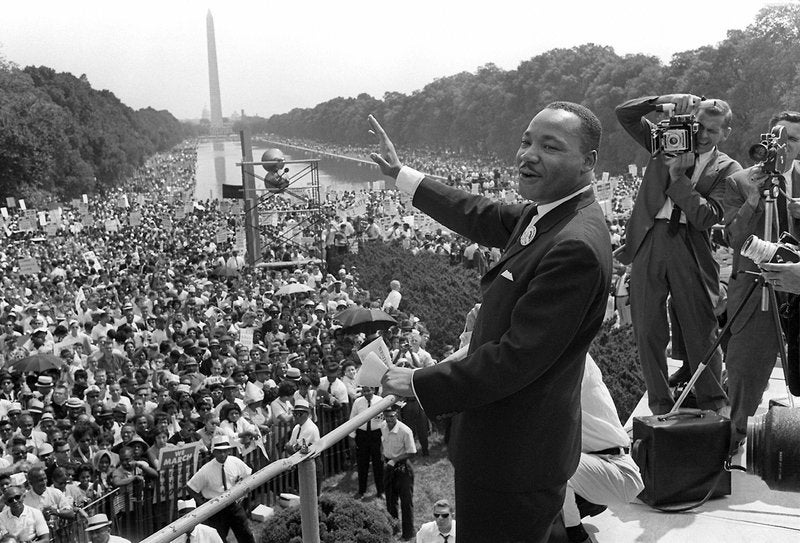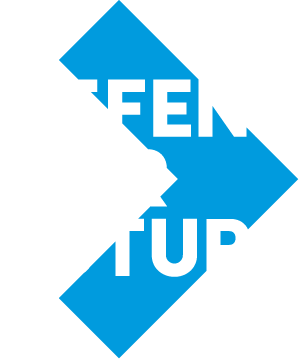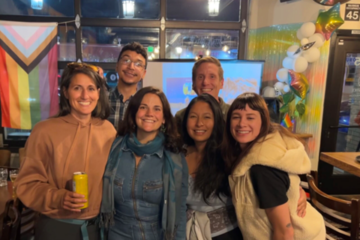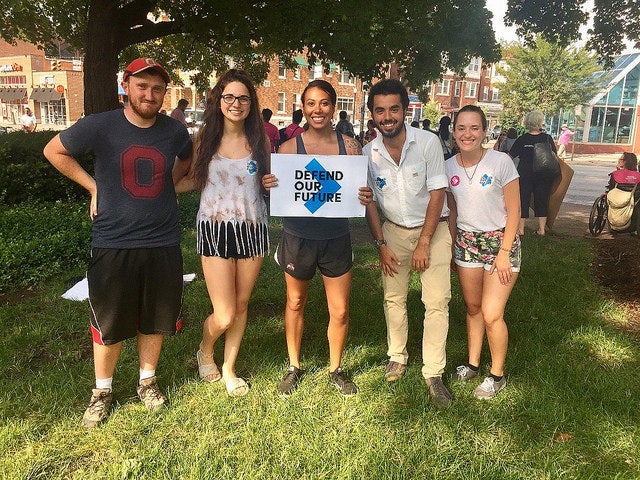
For me and a lot of Americans, MLK Day is always a big deal. But with the events of the past year — and recent weeks in particular — it’s hard not to see this year’s holiday as strikingly relevant.
The U.S. Capitol, of course, was breached by armed insurrectionists just two weeks ago, in an attempt to delay the results of the 2020 Presidential Election and to wreak havoc on our duly elected leaders. The Confederate flags and Nazi shirts were pretty heavy-handed clues about the motivations for some of the participants. But a recent piece in The Atlantic, “The Capitol Riot Was an Attack on Multiracial Democracy,” by Adam Serwer laid bare just how intrinsic suppression of minority voting is to the history of the country.
It’s an excellent read top to bottom, but here’s one key excerpt:
“[Trump], and many of his supporters, now insists that he must be allowed to remain in power despite having lost his reelection campaign, arguing that his opponent’s victory is illegitimate regardless of the results, and demanding that votes from predominantly Black constituencies in swing states be thrown out. As Trump put it, “Detroit and Philadelphia—known as two of the most corrupt political places anywhere in our country, easily—cannot be responsible for engineering the outcome of a presidential race.” Presenting the disenfranchisement of Black Americans as an exercise in good government is one of the most recognizable constants of American history.”
The assault on the U.S. Capitol, then, is not only an attack on our government, but a rejection of the will of the multiracial coalition that voted for it. And appropriately enough, as we’re celebrating Martin Luther King, Jr. today, it’s important to note that this coalition has become more durable since the passage of the Voting Rights Act of 1965, a bill that Dr. King championed through non-violent protest.
The Voting Rights Act was signed by Lyndon B. Johnson on August 6, 1965, after years of peaceful advocacy by civil rights activists and organizers such as the Southern Leadership Christian Conference and the Student Nonviolent Coordinating Committee. The act sought to guarantee the right to vote among Black Americans and other racial minorities by banning election and voting laws that discriminated by race.
The multiracial coalition that has been protected by the Voting Rights Act continues to grow and thrive, and was instrumental in Barack Obama’s election as the first Black President of the United States. However, even with these successes, there was an illusion that voter suppression was a relic of the Jim Crow era and that has led to rollbacks of the Voting Rights Act. In 2013, the Supreme Court case Shelby County v. Holder weakened the law by ruling the federal preclearance authorization was no longer needed when states changed their election laws. Many of the states subjected to this preclearance had a history of discrimination in voting. Years after the case, state legislatures introduced voter ID and exact-matching voter registration laws that did result in some states purging individuals from the board of election databases.
Nevertheless, the multiracial coalition has endured and grown. Just as it did over a decade ago, this coalition came together again as increased Black, and Latino turnout proved pivotal in President-elect Joe Biden’s victory in key swing states.
As distressing as the scenes were at the U.S. Capitol, we recognize that just the day before another multiracial coalition guided the victories of Reverend Raphael Warnock – senior pastor of MLK’s church- and Jon Ossoff, who will serve as the first Black and Jewish U.S. senators, respectively, from the state of Georgia. Both of them ran on a platform protecting our planet and promoting clean energy, but crucially they also ran on passing the John Lewis Voting Rights Advancement Act, an update to the Voting Rights Act of 1965 that restores the federal preclearance process and strengthens current election laws.
Martin Luther King Jr. was a dreamer, but he was realistic about the threats to democracy, especially if left unprotected. Our history is not a straight line. Within a decade, our country elected its first Black President and then elected an individual who dabbles in white nationalism. Our democracy was shaken two weeks ago, but it did not crumble because enough progress has been made to avoid a major backslide. We owe Martin Luther King and other great civil rights leaders a debt of gratitude. But we can only repay by committing to dismantle the systems of white supremacy and protect this multiracial coalition, all of them vital in building this more perfect union.




